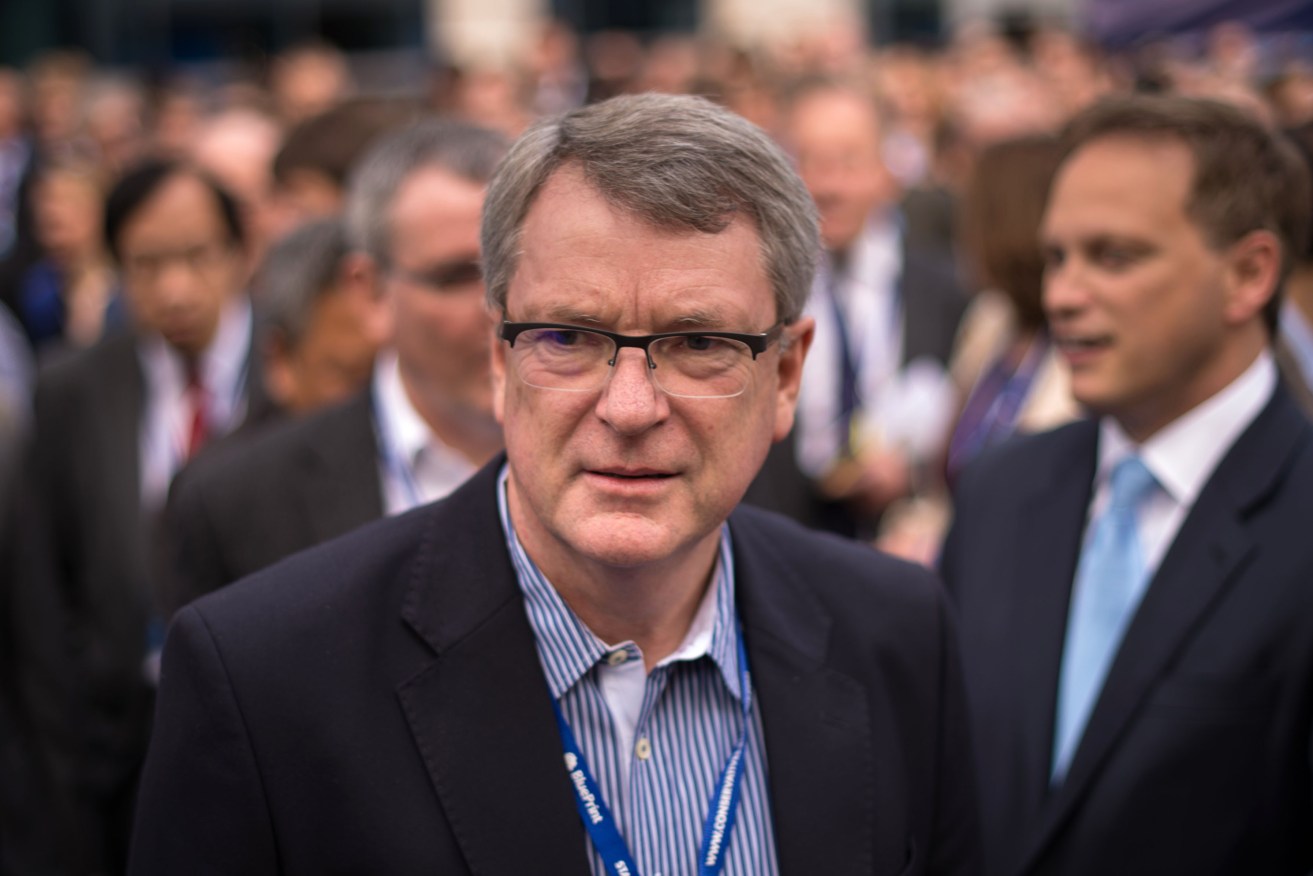Controversial South Australian to run May’s election campaign
Controversial Australian election strategist Sir Lynton Crosby has been hired to run the Conservative Party’s general election campaign, it is understood.

Political strategist Lynton Crosby. Photo: Stefan Rousseau/PA Wire
The South Australian born and educated operative will play a leading role in the campaign with his colleague at CTF Partners, Mark Textor, alongside Tory chairman Sir Patrick McLoughlin and strategist Lord (Stephen) Gilbert.
Sir Lynton, heralded as both the “Wizard of Oz” and a “master of the dark political arts”, was widely regarded as the mastermind behind David Cameron’s unexpected outright general election victory in 2015.
He also ran both of Boris Johnson’s successful London mayoral campaigns.
But some of his techniques, such as the so-called “dead cat strategy“, and the work of his lobbying firm, including with the tobacco industry, have proven controversial.
His firm’s running of Zac Goldsmith’s failed London mayoral campaign last year was criticised, even within the Tory Party, for its negative messaging and focus on Sadiq Khan’s Muslim background.
Cameron was accused of rewarding “Tory cronies and donors” in his 2016 New Year’s honours, which included Sir Lynton’s knighthood.
He task will begin with the Conservatives in a strong position, after Prime Minister Theresa May called a snap June 8 general election.
An opinion poll conducted after the announcement shows the Conservative Party has a 21-point lead over the main opposition Labour, the joint highest on record.
The ICM/Guardian poll of 1,000 people showed the Conservatives’ vote share stood at 46 per cent, up two points from a poll conducted over the weekend, with Labour on 25 per cent and the Liberal Democrats on 11 per cent.
“As we enter this campaign it’s clear that Labour have an electoral mountain top climb, and its leadership appears to have left its ropes and crampons at base camp,” said Martin Boon, director of ICM Research, in a statement.
Around three in five respondents said May was right to call a general election, the poll showed. ICM’s survey dates back to the early 1980s.
May had earlier called a snap election, saying she needed to strengthen her hand in divorce talks with the European Union by bolstering support for her Brexit plan.
British Prime Minister Theresa May has stunned Westminster by calling an early general election for June 8.
Standing outside her Downing Street office, May said she had been reluctant about asking parliament to back her move to bring forward the poll from 2020. but decided it was necessary to try to stop the opposition “jeopardising” her work on Brexit.
May has repeatedly said she does not want to be distracted by time-consuming campaigning – but opinion polls give her a strong lead, the economy is weathering the Brexit vote and she has faced opposition from her own party for some of her domestic reforms.
Sterling rose to a four-month high against the US dollar after the market bet that May would strengthen her parliamentary majority, which Deutsche Bank said would be a “game-changer” for the pound.
The stronger pound helped to push down Britain’s main share index, which was headed for the biggest one-day drop since June 27, days after Britain voted to leave the EU.
“It was with reluctance that I decided the country needs this election, but it is with strong conviction that I say it is necessary to secure the strong and stable leadership the country needs to see us through Brexit and beyond,” May said.
“Before Easter I spent a few days walking in Wales with my husband, thought about this long and hard, and came to the decision that to provide that stability and certainty for the future that this was the way to do it, to have an election,” she told ITV news.
Britain joins a list of western European countries scheduled to hold elections this year.
Votes in France in April and May, and in Germany in September, have the potential to reshape the political landscape around the two years of Brexit talks with the EU expected to start in earnest in June.
– PA/Reuters




